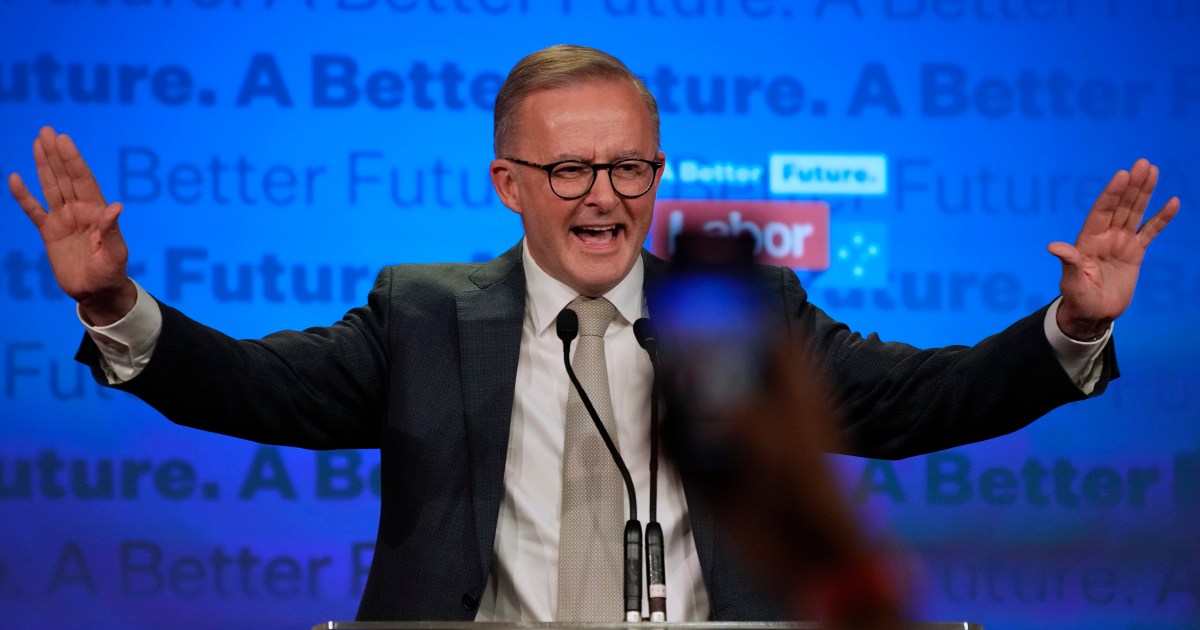US defence chief says militaries should be civilian controlled
US President Joe Biden’s defence secretary, Lloyd Austin, speaking at an Americas-wide defence conference in Brazil, where military loyalty to the constitution has become a central issue ahead of the October 2 presidential election, said militaries should be under civilian control.
Austin, a retired US Army general, made the comments on Tuesday, from Brazil’s capital, Brasilia.
“Credible deterrence demands military and security forces that are ready, capable, and under firm civilian control,” Austin said, adding: “The more we deepen our democracies, the more we deepen our security.”
Austin’s remarks came just two days after Brazilian President Jair Bolsonaro formally launched his re-election bid by saying: “The army is on our side.”
The right-wing populist has publicly cast doubt on the validity of Brazil’s electoral system. Some opinion polls show him down almost 20 percentage points against his main presidential opponent, former President Luiz Inacio Lula da Silva of the Workers’ Party.

Austin is expected to hold bilateral talks with Brazil’s delegation on Wednesday.
Austin is in Brazil participating in the 15th Conference of Defense Ministers of the Americas (CDMA).
The US Department of Defense said that during the visit, Austin will “support affirming the role of the military in a democratic society, including respect for civilian authorities, democratic processes, and human rights”, according to a press release published Friday.
“To the venue as a whole, he is going to bring a very strong and clear message on the need for militaries to respect democracies,” a senior US defence official told Reuters, speaking on condition of anonymity.
The manoeuvres have unnerved Brazil watchers in Washington, DC, including in Congress.
“[Austin] should simply make clear that the military should stay out of the election and allow any disputes about the election to be resolved by constitutional means,” US Representative Tom Malinowski, a Democrat and a member of the House Foreign Affairs Committee, told Reuters.
“And he should remind his counterparts that US law restricts our cooperation with foreign militaries that participate in anything that might resemble a coup.”
Military leaders have repeatedly said Brazil’s armed forces will respect any result of the election.
Some military officials have made headlines, however, by echoing Bolsonaro’s comments about potential weaknesses in Brazil’s voting system.
Bolsonaro has sought to characterise the upcoming race as a battle between good and evil, echoing his 2018 campaign that presented him as an outsider crusading to restore law, order and conservative values to a wayward nation. He joined the centrist Liberal Party in November after failing to found his own party.
Bolsonaro has based much of his political career on nostalgia for Brazil’s 1964-1985 military dictatorship, disparaging Congress and the courts while filling his government with current and former officers from the armed forces.
It’s great to be here in Brazil, and I’m very much looking forward to attending the 15th Conference of Defense Ministers of the Americas tomorrow. It’ll be a great opportunity to work alongside our partners to address the region’s most pressing security issues. pic.twitter.com/9A6W8YmxQg
— Secretary of Defense Lloyd J. Austin III (@SecDef) July 26, 2022
Thomas Shannon, a former US ambassador to Brazil, said Brazilians were looking for signs about how their military might act if Bolsonaro refuses to accept defeat at the ballot box.
“Secretary Austin … is walking into a political tempest in which Brazilians are trying to measure the level of institutional support for a potential effort to undo the results of the elections,” Shannon told Reuters.
Former US officials, including Shannon, cautioned that Brazil does not respond well to threats, and that any messaging has to be focused on the US-Brazil partnership “as opposed to saying: ‘Don’t do this and don’t do that.’”
“But it has to be [a message] that makes clear that the US-Brazil military-to-military partnership depends on a common commitment to democratic values and practice,” Shannon said.
The US Department of State recently affirmed its confidence in Brazil’s electoral system, a rare step during a heated, polarising campaign.
“We don’t want to get in the middle of Brazil’s elections, at all. But we want to ensure that the fact [is known] that we believe Brazil’s electoral system is credible and capable of managing a free and fair election,” the senior US defence official said.




